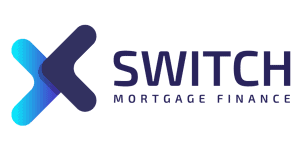When you are thinking about applying for your first mortgage or remortgage, it is best to be prepared and get all your information ready as quickly as possible.This will help a mortgage broker assess your situation quicker meaning you will obtain the best deal as quickly as possible.
The mortgage market is moving very quickly with some mortgage lenders removing products with 3 hours’ notice. So you don’t miss out; we would recommend having the below ready so your application can move as quickly as possible.
Universally required documents
Proof of ID
- Passport – Make sure your passport is in date and if you have a newer passport that you have signed the passport, otherwise this will not be accepted by lenders.
- Driving licence – make sure your driving licence is in date, your address is correct.
Proof of Address
As a general rule lenders may ask for 2 of the following:- Most recent utility bill – This should be dated within the last 3 months
- Council Tax Bill – must be dated within the last 13 months
- Bank statement – must be dated within the last 3 months.
- Credit card bill – must be dated within the last 3 months.
Proof of Income
In order to submit a mortgage application, your lender will require knowledge of your income in order to know what you can afford. Depending on the type of income you receive, you may need different kinds of paperworkEmployed
Payslips – Best practice is to obtain your 3 most recent. If you have recently started a new job, a lender may want to see a p60 or employment contract.Self Employed
Self-assessed tax return forms (SA302) and tax year overviews – Maximum last 3 years, minimum last years. An accountant’s certificate – A mortgage broker will always let you know if this is required and we do not recommend getting this pre recommendation.Other sources of income
P60 – use this as evidence of bonuses, overtime and commission. For bonuses they may also ask for the latest bonus payslip to evidence. Letter from HMRC – to evidence child benefits and working/child tax credits. Department of Work and Pensions (DWP) letter – to evidence state pensions and state benefits. Pension payslip and/or pension p60 – use this as evidence of a private pension or annuity. Rental Income – Self-assessed tax return forms (SA302) and tax year overviews – Maximum last 3 years, minimum last yearsLimited Company Directors
Most lenders will use your personal income and dividends to calculate your average basic income, although some may be willing to consider your net business profits. Based on the lender’s individual criteria, you will need to provide the below documents, usually covering the last two to three years:- Finalised and certified company accounts
- Self-assessed tax return forms (SA302) and tax year overviews
- Business bank statements
Partnerships
If you own 25% or more of a business as a partner, your income derived from this partnership can be used in support of your mortgage application, however, if you own less than that, it will not be considered as self employed income. Your share of the net profits is used to determine your basic salary and you will need to provide similar evidence to Limited Company Directors, as above.Sole Traders or Freelancers
As an independent or freelance worker, your proof of income is slightly more straightforward because there is only your personal income to consider. You will need to provide two to three years’ worth of:- Certified accounts
- Self-assessed tax return forms (SA302) and tax year overviews
Contractors
- Self-assessed tax return forms (SA302) and tax year overviews
- Contracted day-rate evidence
- Signed contracts



